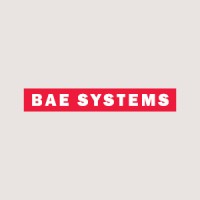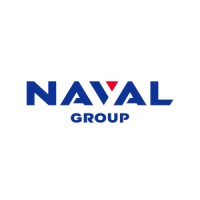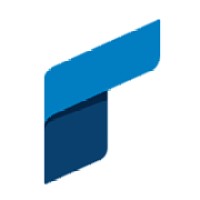Company Cyber Security Posture
NANA
NA Company Details
NA
NA
NA
NA
NA
NA
Scan still pending
NA
NA
Between 200 and 800
This score is AI-generated and less favored by cyber insurers, who prefer the TPRM score.
 NA Global Score
NA Global Score.png)

Company Scoring based on AI Models
| Model Name | Date | Description | Current Score Difference | Score |
|---|---|---|---|---|
| AVERAGE-Industry | 03-12-2025 | This score represents the average cybersecurity rating of companies already scanned within the same industry. It provides a benchmark to compare an individual company's security posture against its industry peers. | N/A | Between 200 and 800 |
Company Cyber Security News & History
| Entity | Type | Severity | Impact | Seen | Url ID | Details | View |
|---|
Company Subsidiaries

NA
Access Data Using Our API

Get company history
.png)
NA Cyber Security News
General Dynamics to Bolster Defense at US Army Bases
General Dynamics Information Technology (GDIT) has signed a $580-million deal to maintain the security and readiness of US Army bases.
General Dynamics IT: Leading the Defense Sector's Digital Transformation with AI and Cybersecurity
The global defense sector is undergoing a profound digital transformation, driven by the need to modernize infrastructure, ...
General Dynamics reports data breach following phishing campaign
None
David Carroll Joins GDIT as Vice President of Cyber Capability, Engineering, and Strategy
David Carroll has started a new role as the Vice President of Cyber Capability, Engineering, and Strategy at General Dynamics Information ...
Is General Dynamics (GD) the Best Cybersecurity Stock to Buy According to Wall Street Analysts?
General Dynamics Corporation (NYSE:GD), headquartered in Reston, Virginia, is a leading American aerospace and defense company, specializing in ...
Everfox and General Dynamics Information Technology Collaborate to Deliver Insider Threat Solution
Everfox announced its collaboration with General Dynamics Information Technology (GDIT) to deliver a solution addressing insider threat risks.
David Carroll Appointed to Vice President Role at GDIT
Get to know David Carroll, who was appointed as vice president of cyber capability, engineering and strategy at GDIT.
Global tech company on track to bring $3.5B economic boon to Bossier, Louisiana
The economic impact numbers associated with General Dynamics Information Technology are big and getting bigger.
General Dynamics acquires Tampa cyber security firm
Iron EagleX, a veteran-owned cybersecurity firm based in Tampa, was acquired by General Dynamics Information Technology, a business unit of ...

NA Similar Companies

Sandia National Laboratories
Sandia National Laboratories is the nation’s premier DOE science and engineering lab for national security and technology innovation. Our team of scientists, engineers, researchers, and business specialists apply their knowledge and skill toward delivering cutting-edge technology in an array of area

BAE Systems, Inc.
Improving the future and protecting lives is an ambitious mission, but it’s what we do. BAE Systems, Inc. is the U.S. subsidiary of BAE Systems plc, an international defense, security and aerospace company headquartered in Arlington, VA, with locations across the country. BAE Systems employees’ ded

CAE Defence & Security – Indo-Pacific
CAE is the leading global training and simulation company developing solutions that prepare defence forces for mission success. For over 30 years, CAE has had a significant presence in the Indo-Pacific region that today includes more than 300 employees at 20 sites. CAE resolves operational challen

Aselsan
ASELSAN is a company of Turkish Armed Forces Foundation, established in 1975 in order to meet the communication needs of the Turkish Armed Forces by national means. Currently 74,20% of the shares are owned by the Foundation whereas the remaining 25,8% runs in İstanbul Borsa stock market. ASELSAN is

NAVAL GROUP
Naval Group is a partner to its customers' maritime sovereignty. An international player in naval defence and heir to French naval know-how, Naval Group develops innovative solutions to meet the needs of navies. Present throughout the entire life cycle of the ships, the group designs, builds, integr

Rheinmetall
As an integrated technology group, the listed company Rheinmetall AG, headquartered in Düsseldorf, stands for a company that is as strong in substance as it is successful internationally, and that is active in various markets with an innovative range of products and services. Rheinmetall is a leadin

Frequently Asked Questions
Explore insights on cybersecurity incidents, risk posture, and Rankiteo's assessments.
NA CyberSecurity History Information
How many cyber incidents has NA faced?
Total Incidents: According to Rankiteo, NA has faced 0 incidents in the past.
What types of cybersecurity incidents have occurred at NA?
Incident Types: The types of cybersecurity incidents that have occurred include .
Additional Questions
What Do We Measure?
















Every week, Rankiteo analyzes billions of signals to give organizations a sharper, faster view of emerging risks. With deeper, more actionable intelligence at their fingertips, security teams can outpace threat actors, respond instantly to Zero-Day attacks, and dramatically shrink their risk exposure window.
These are some of the factors we use to calculate the overall score:
Identify exposed access points, detect misconfigured SSL certificates, and uncover vulnerabilities across the network infrastructure.
Gain visibility into the software components used within an organization to detect vulnerabilities, manage risk, and ensure supply chain security.
Monitor and manage all IT assets and their configurations to ensure accurate, real-time visibility across the company's technology environment.
Leverage real-time insights on active threats, malware campaigns, and emerging vulnerabilities to proactively defend against evolving cyberattacks.




